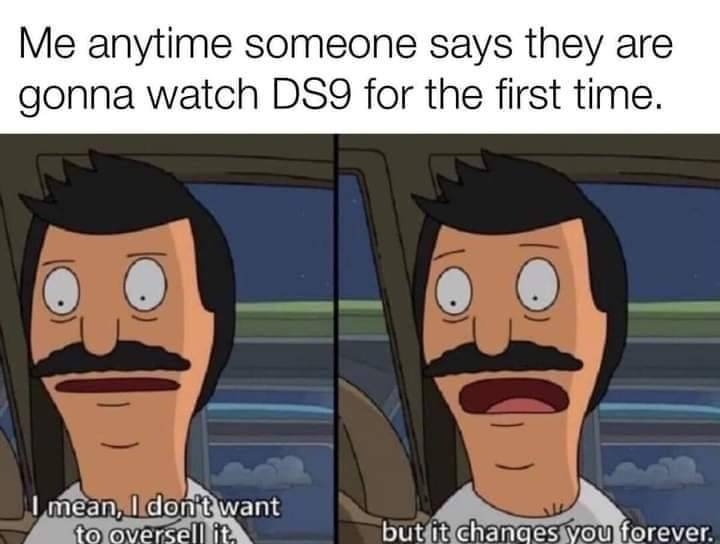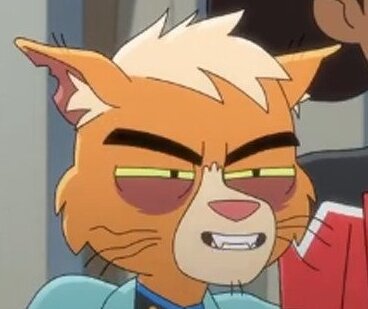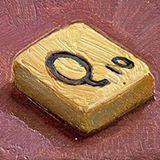My partner is into DS9 and suggested we watch some last night. For some reason episode 1 was not available on Amazon Prime.(?) We watched Past Prologue and A Man Alone. As someone who is only barely familiar with the Star Trek universe, here are my thoughts:
-
Sisko is a fantastic leader and also terrifies me. His smile makes me uneasy. “Go over my head again, and I’ll serve yours on a platter.”
-
Kira’s morality is super questionable and I’m amazed they didn’t kick her off the station after episode 2.
-
Bashir is a dork and also needs to take a hint and leave Dax alone. Clearly they aren’t interested.
-
I do love Dax as a sort of early mainstream media conversation starter on gender. The Trill overall are just a brilliant way to frame the idea of how gender and sex work.
-
It’s rough seeing Odo so accustomed to hatred. When he just dips behind a glass door to watch as a mob call for his death…
I’m surprised by the level of dysfunction in the crew. I sort of always saw Star Trek as a bunch of Space Paladins that always did the right thing but in DS9 everyone has their own motives and interests and it’s super interesting to watch them come together. I think I’ll keep watching and see where things go.

It literally changed me
You’re in for a really good experience. Gene Roddenberry had a very specific vision for Star Trek. The federation was his vision for humankind. He wanted us to be those people - at least, to want to be those people. So the federation became something of a Mary Sue. It’s something I really love about the show - it’s good to have a Lancelot around
DS9 has two things that set it apart from previous (and some subsequent) Treks. First and foremost, there’s a full story arc that travels throughout the series. It does have some more episodic, us, episodes, but it was the first Trek with a storyline that wasn’t about exploring the galaxy. TNG had some multipart episodes and some plot lines that ran across the better part of a season, but the entirety of DS9 takes place against a continuous plot line. The fact that they’re (generally speaking) not Boldly Going anywhere is kind of a metaphor.
It also explores some much darker themes than the other Treks, including colonization, genocide, terrorism, and what we might give up when we believe the ends can justify the means. It’s a side of the federation that Roddenberry wanted to reject, but I think having it throws his vision of what humans can be into even sharper relief.
Like with the other Treks, it takes about a season or so before the writers and actors settle into the characters. I happen to agree with you about Sisko. He’s the most military-like of any Trek captain I’ve ever seen. I’m not going to say anything else because you’re going to love watching everything unfold.
But keep an eye on that tailor.
But keep an eye on that tailor.
Oh I forgot to talk about Garak! I really like how expressive he is, something about him reminds me a lot of Robin Williams. The bit where he tells Bashir to buy a suit at precisely 2055 and Bashir just totally doesn’t get it… I’m hoping the doctor grows on me but he’s probably my least favorite so far ha.
Bashir definitely gets better. There are a few episodes that recontextualize his character and each one makes him come across much better. He also just grows a lot.
On my first rewatch now and I can say that season one Bashir threw me for a loop because of just how obnoxious he is!! His interactions with any female character, or O’Brien… I guess I forget that the writers had to lay the bedrock of an annoying character in order to cover his later transition into a character we were excited about 🤣
Garak is arguably my favorite character in all of Trek, especially after reading “A Stitch in Time” which fleshes out his background considerably.
I don’t think this is much of a spoiler but >!Garak basically becomes a regular without Andrew J. Robinson’s name appearing in the opening credits. I don’t have exact numbers but it feels like he appears in later seasons as much as Jake does!<.
I think you’ve really pointed out a lot of why I think it’s one of the best, if not the best ST series. The characters are not as homogeneous, have more agency, and seem more “human” and complex. While I do think it still has a bit of the “rose-tinted glasses” perspective that has been part of Star Trek since its creation, I think it’s for a lot more grit to it and it’s more willing to go to darker places and examine moral ambiguity than other series did.
Not that the optimism seen in the other series is bad, just nice to sometimes have series that seem more genuine and relatable examples of the human experience rather than escapism.
I am usually on the other side of this argument, in that my main enjoyment of Star Trek is the exploration of ideas and morality plays that we get from TOS, TNG and the early seasons of Voyager. The utopian setting and unrealistic morality of all the main characters in TNG especially are what makes an episode exploring the nature of individuality or whatever topic work so well.
I enjoy DS9 for what it is, but it also set the stage for modern Trek which is so obsessed with “realism” and galaxy-spanning plotlines in a way that I do not enjoy. If I want to watch just an episode or two, I always reach for TNG or Voyager, but if I want to do a longer re-watch then DS9 is definitely my preferred choice.
Episodic is not always a bad thing, and sometimes it is actually a very important feature! I wish modern TV writers and producers would have the same perspective about serialization, but in reverse.
I’m on that side too :D I like both but am a bit of a sucker for tragedies and non-utopian fiction.
I do, however, agree with your thoughts on the narrative direction. DS9 did indeed open the door for less-Treky series that I don’t think necessarily benefitted the ST universe and probably would have been better as independent sci-fi series in their own settings.
I think what makes DS9 work is its core premise, and the problem with some of the newer stuff is they’re trying for that tone without that premise to back it up. As Sisko says early on, it’s easy to be a saint in paradise, but DS9 isn’t paradise; they’re at a backwater that’s been ravaged by decades of military occupation and is struggling to get by. On Earth, people can just replicate whatever they need for free, but Bajor doesn’t have a post-scarcity economy and they often need to make hard choices. Half the crew also isn’t from the Federation and doesn’t have that strong sense of morality ingrained in them from birth.



